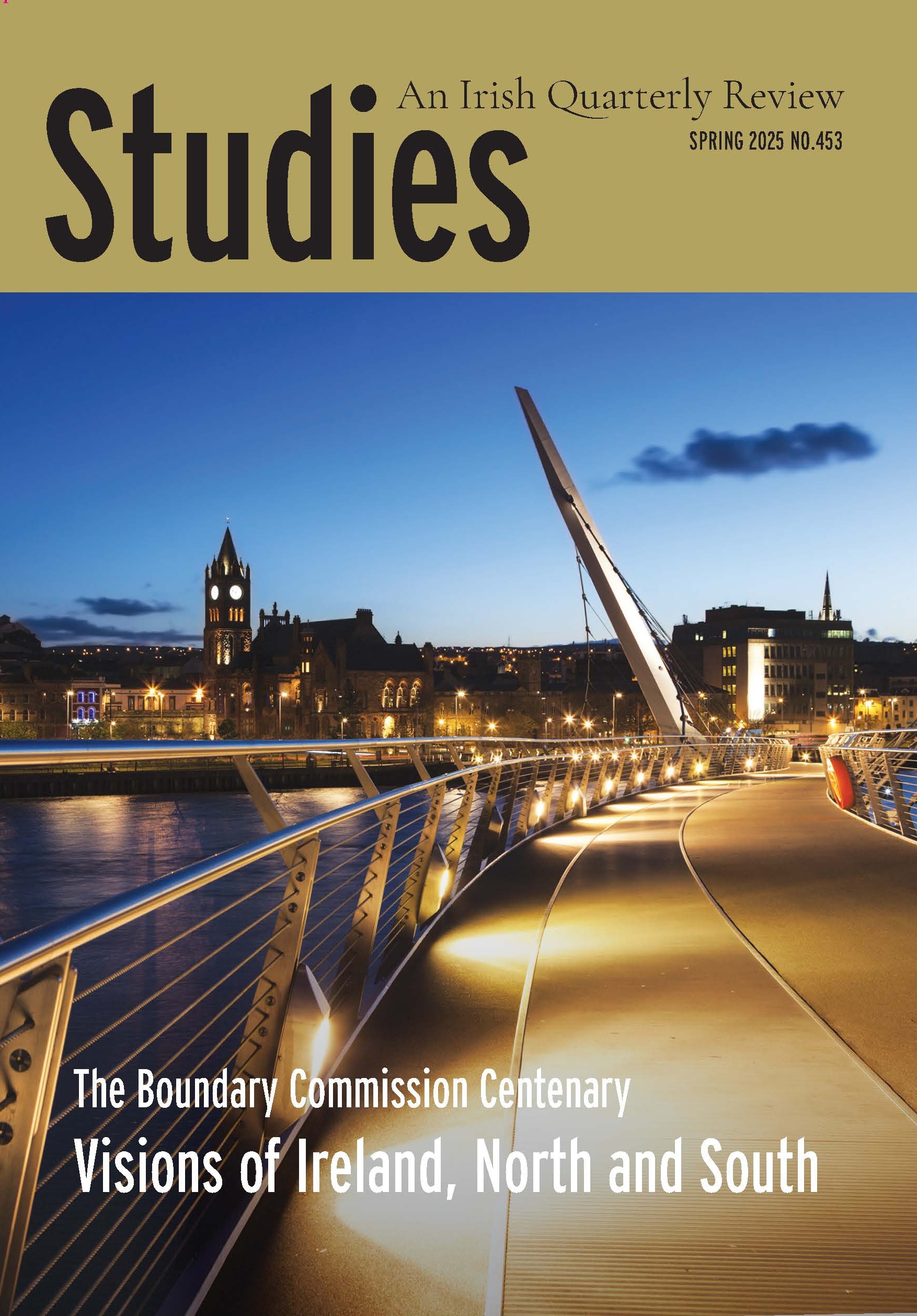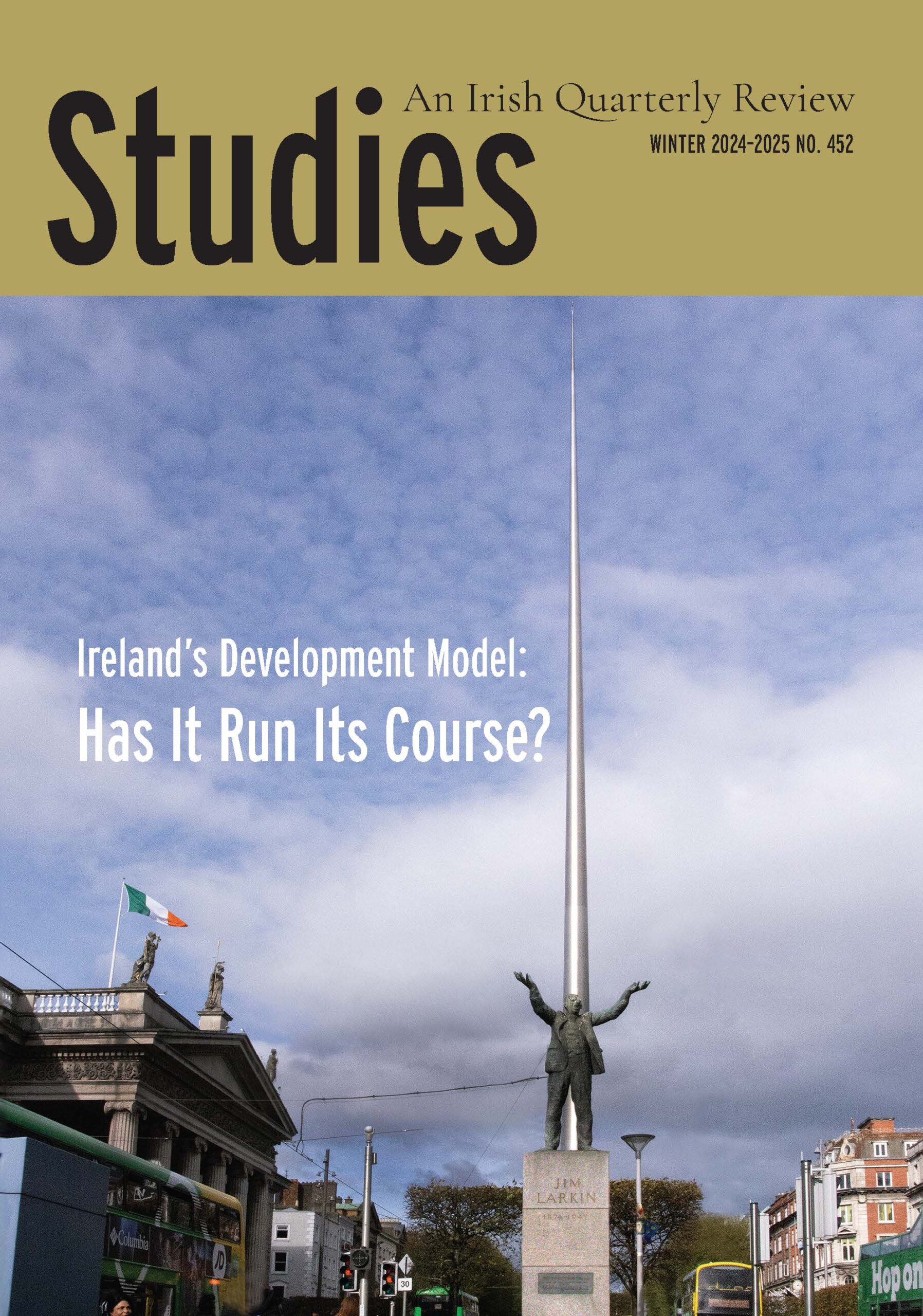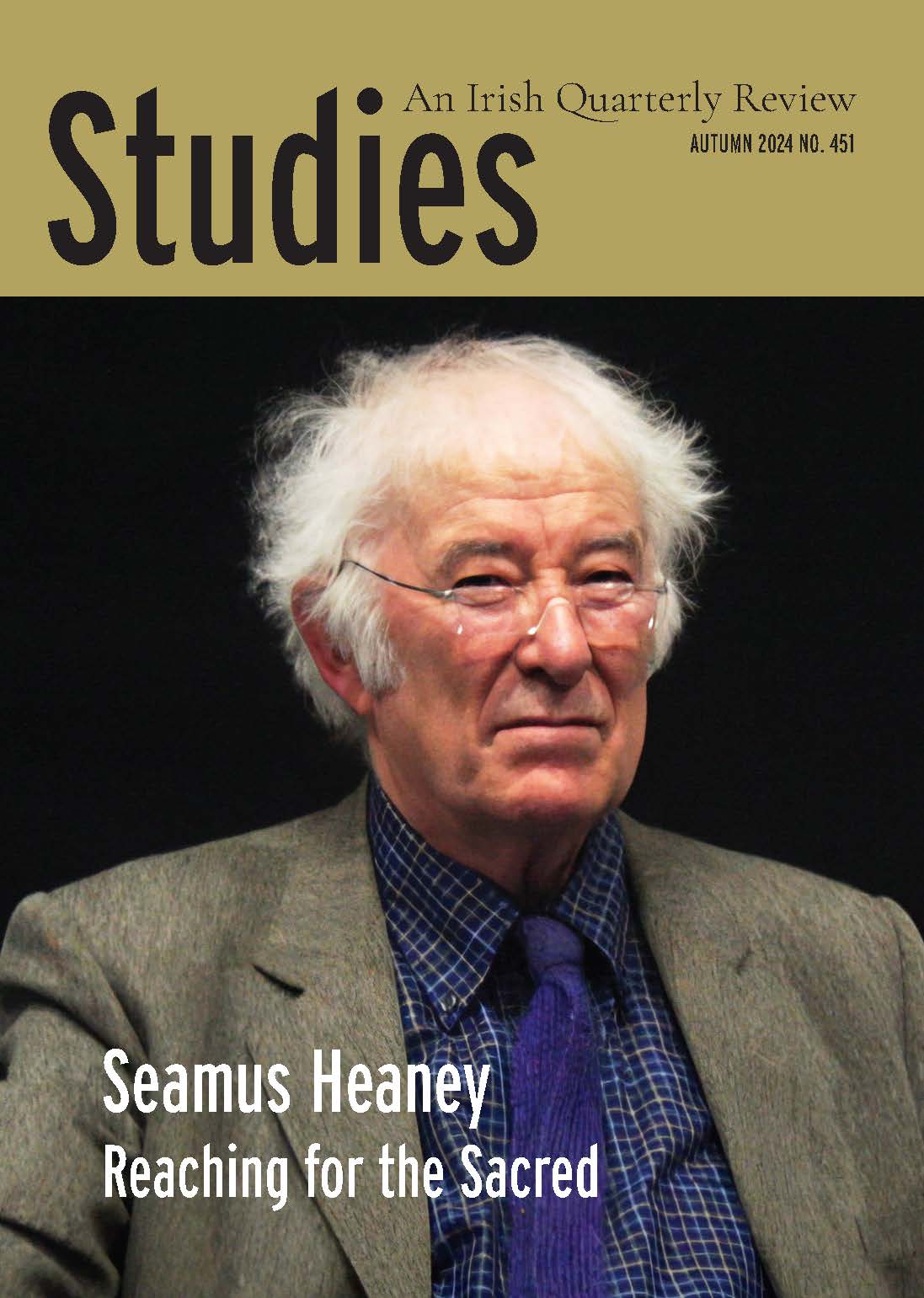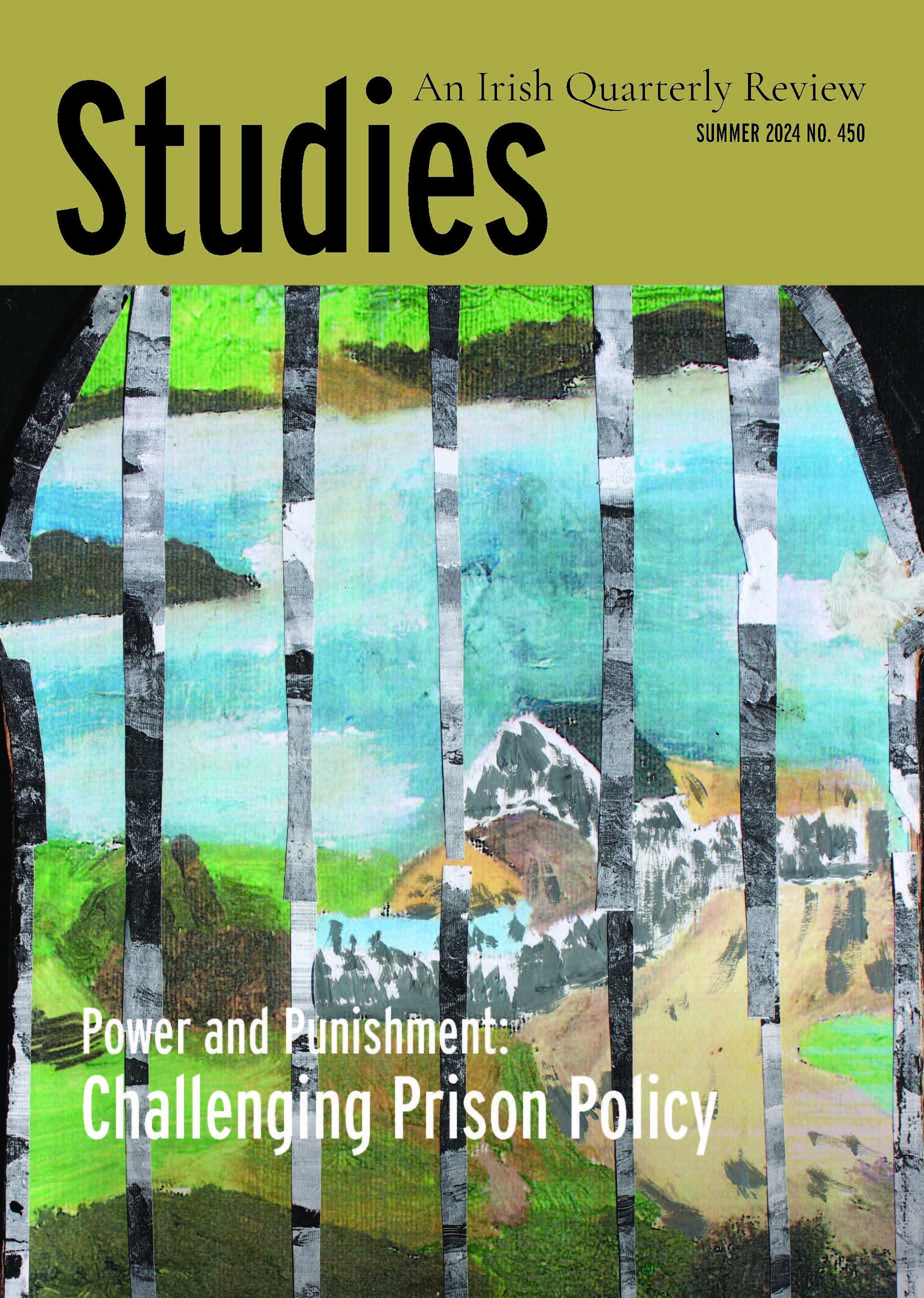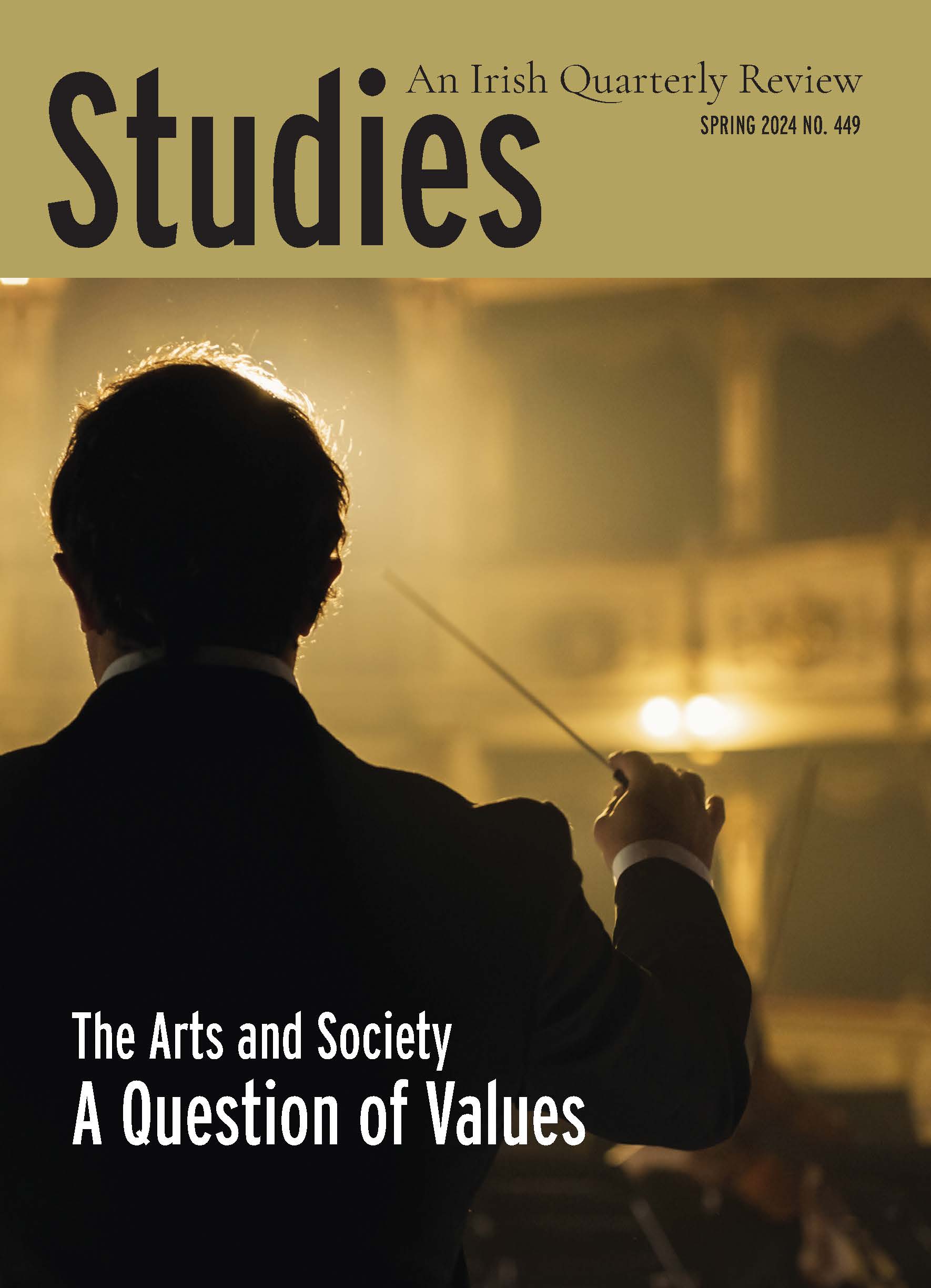PREVIOUS ISSUES
2025
2024
History
Studies: An Irish Quarterly Review has been published continuously since its launch by the Irish Jesuits in March 1912. It was intended to reach as wide a readership as possible, given its serious objective, as expressed in the first Foreword, to be ‘a Review which would give publicity to work of a scholarly type, extending over many important branches of study, and appealing to a wider circle of cultured readers than strictly specialist journals could be expected to reach’.
The journal had a distinctive Irish and religious viewpoint but the subjects it covered ranged widely, comprising – to cite the original prospectus once more – literature, history, philosophy, sociology, education and science. As Professor Bryan Fanning wrote in his recently published anthology of the best of Studies over its first century of publication, ‘In 1912 Catholic intentions hardly needed to be advertised’. It was to be ‘catholic’ in both senses.
Its survival into a second century of existence makes it almost unique among Irish publications. Today we describe our purpose as examining ‘Irish social, political, cultural and economic issues in the light of Christian values’ and exploring ‘the Irish dimension in literature, history, philosophy and religion’.
Professor Fanning’s anthology exhibits some of the rich array of contributors, which includes Padraig Pearse, Seán Lemass, George Russell, John Maynard Keynes, Daniel Binchy and Michael Tierney in earlier decades, and, more recently, Patrick Lynch, Seán Ó Faoláin, Tom Garvin and Fanning himself. Garret Fitzgerald also wrote frequently for Studies. Some of the most recent issues have featured contributions from John Bruton, Lord David Alton, Micheal O’Siadhail, Peter Sutherland, Finola Kennedy, Emily O’Reilly, Iseult Honohan, Martin Mansergh, Ruairi Quinn, Michéal Martin and Archbishop Richard Clarke.
Inevitably, in a journal which has survived so long and been published against the background of so much, often cataclysmic, change in Ireland and further afield, over the past hundred years, the editorial perspective has evolved. Bryan Fanning’s introductory essay to A Century of Studies argues that, in the journal’s pages, what he calls ‘the Manichean distinctions between Catholicism and liberalism claimed by some accounts of Irish modernisation break down’. What is revealed is ‘the symbiosis as well as conflict between both intellectual traditions’. He notes how ‘Studies had moved well to the left of the political mainstream by the 1980s’ and sees ‘its critique of the economic crisis of that decade’ as having ‘focused very much on the damage to social cohesion engendered by market forces’. Today, he argues, ‘Scepticism about neo-liberalism and commitment to social justice set Studies apart from the rightward shift of the Irish political mainstream’. He concludes: ‘In an Ireland stifled by damaging complacencies its new place outside the mainstream has been both honourable and interesting’.
All nine editors to date have been Jesuits. The concerns mentioned in Fanning’s account reflect the social and theological commitments of the Catholic Church, under the leadership of Pope Francis, and the Society of Jesus in the twenty-first century. They continue to be the concerns of Studies today. At the same time, we aim to remain ‘catholic’ in the best sense, continuing to attract a wide range of readers, not least, as we have done for more than a century now, those individuals, libraries and university departments with Irish interests around the world.
An Irish Century: Studies 1912–2012, edited by Bryan Fanning, is published by University College Dublin Press.
